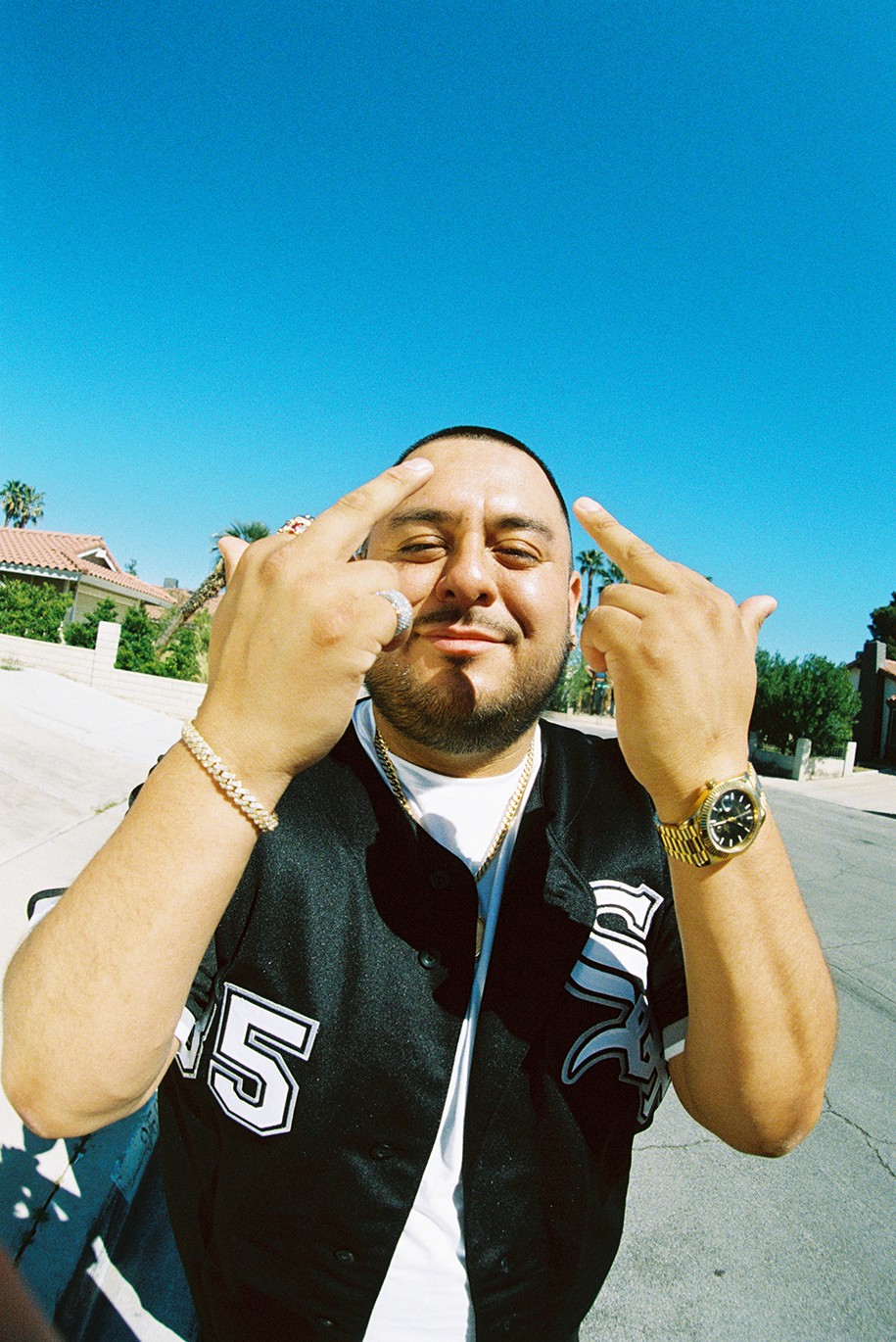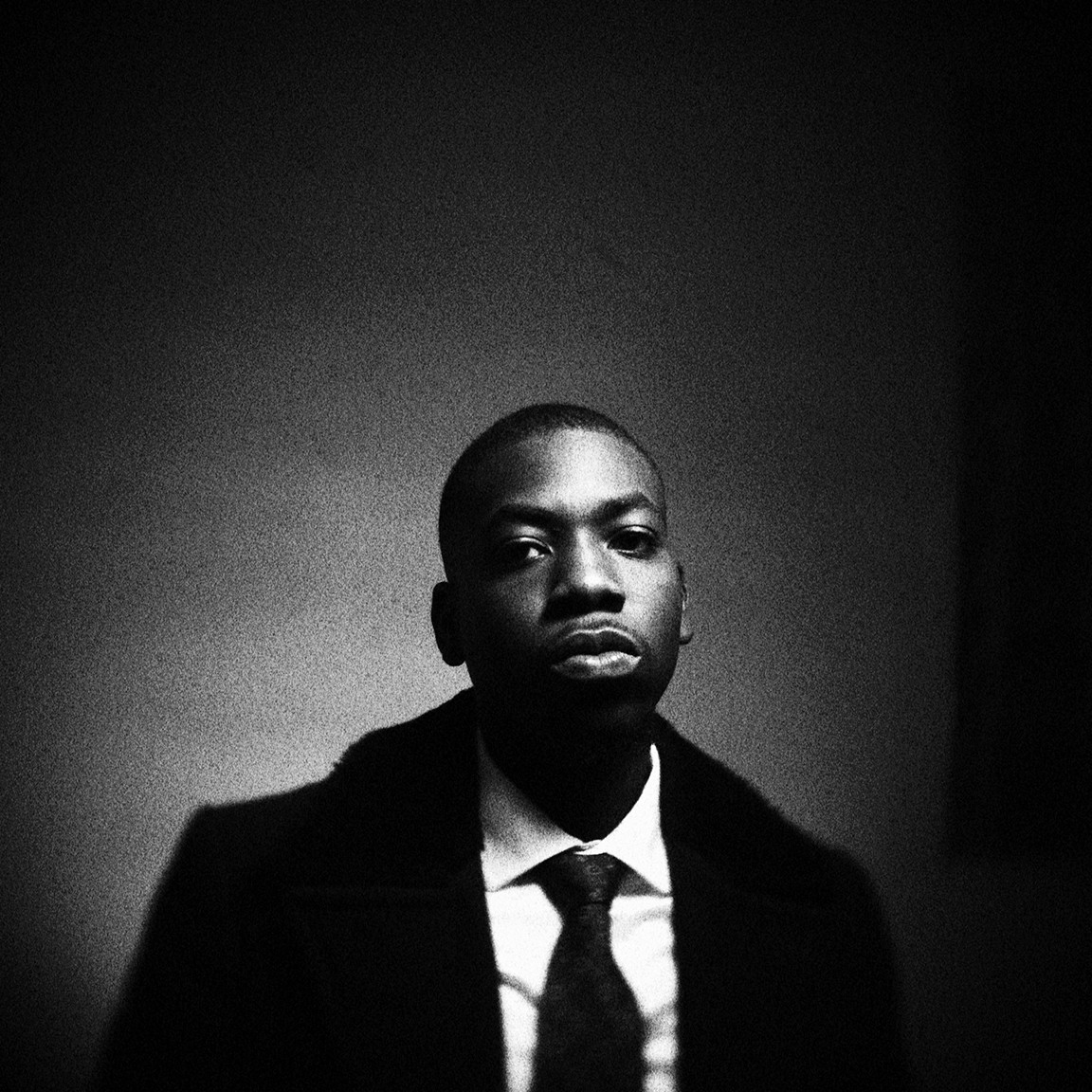Exclusive Interview
Apr 18, 2025
Produced by: Rudy Manager
Edited by: Rudy Manager & Andrej Aroch
Tk Kayembe – Latin Grammy-Nominated Producer on Artist Development & Creative Process
In this exclusive Studio Talks interview, we sit down with acclaimed music producer Tk Kayembe to talk about his journey, creative process, and the lessons he’s learned along the way. Known for his genre-spanning approach and talent for discovering emerging artists, Tk has worked with names like Angel Haze and Masego, and earned a Latin Grammy nomination for his contributions to Luísa Sonza’s Escândalo Íntimo album. In this conversation, he shares the story of how he got started, his early influences, and the evolving role of technology in music production. This interview was conducted by Rudy Manager via video call on April 3rd, 2025.
“I’ve always been really into discovering new talent”
- Tk Kayembe
How did you first get started with music?
I grew up playing a lot of instruments from a really young age. My mom put me in piano lessons when I was super young, and that’s really where my love for music started. We were a church family, so I spent a lot of time at church, especially in the youth room before services. That’s where I started messing around with different instruments and just naturally gravitated toward playing drums and a bunch of other things.
My parents saw how passionate I was, especially about drums, so they got me my first drum kit when I was in fifth grade. From there, I joined a percussion program at school, got into mallet percussion, joined a few bands and started going to concerts and festivals during junior high and high school. I was just constantly picking up new instruments and learning as much as I could.
That was really the foundation for me—just playing in bands and diving into as many instruments as possible. Then, in college, I got my hands on Native Instruments’ Maschine, which was the first thing I started producing on. Around the same time, I got into Ableton and started making my first beats.
I was one of the original members of this producer collective in LA called TeamSupreme. That’s really where I got my start in production—we used to do these weekly Beat Cyphers, and it helped me grow a lot. After about a year of doing that, I moved out to LA, and I’ve been here doing music full-time ever since. That’s how it all came together for me.
Can you share some of the influences you had early on?
When I was younger, my older sister played a huge role in shaping my taste in music. She always had my back and introduced me to a lot of incredible music. She introduced me to artists like Jay-Z, Common, The Roots, A Tribe Called Quest—just classic hip hop from back in the day.
I also grew up listening to a lot of Michael Jackson. I’m a first-generation Congolese American, so MJ was always playing at family gatherings, along with a lot of traditional Congolese music. That mix definitely shaped my musical foundation.
But beyond that, I was listening to everything—hip hop was a major influence, but I also got into rock, metal, jazz, and all sorts of genres. I think having that wide range of influences really helped shape the way I produce now. I feel like I can draw from the music of the ‘90s and 2000s and blend it with other styles.
Some of those early records were the ones that made me fall in love with music. Even when I was a little kid, I was listening to everything from No Doubt to Jay-Z. It was just a mix of everything—a whole lot of everything.
How did you improve your music early on? You mentioned starting to work with software—what was that progression like?
It was definitely a slow process at first. I got both Ableton and Native Instruments’ Maschine around the same time. Coming from a drumming and percussion background, I was naturally drawn to Maschine because of the MPC-style pad playing—it felt familiar. I liked having something physical I could touch and use to create music, rather than just working inside the computer.
Early on, I produced everything on Maschine. Once I got comfortable and put in my reps with it, I gradually started using Ableton more—especially when it came to recording people. Eventually, that just led to me using Ableton full-time.

What’s your usual process when starting a new idea? When you open your DAW, where do you begin?
Historically, I’ve always started with a chord progression—something that evokes emotion and gets me excited to keep building. I’ve always been a chords-first kind of producer.
Lately, I’ve been pushing myself to get out of that comfort zone and experiment with different starting points, to switch things up. But even then, it usually comes back to playing something on keys or guitar— something that lays the foundation and guides the next musical choice.
For me, it almost always starts with the chords. Once I have that, I just start building everything else around it.
Let’s talk about your work with Luísa Sonza on her Latin Grammy-nominated album Escândalo Íntimo. Can you share how those songs came together and what the production process was like?
One of my good friends, Roy Lenzo, put together this amazing three-day writing camp with me and four or five other talented producers and musicians. We spent those three days at his studio in Hollywood. He set up some great rooms, and the whole vibe was just super creative.
We’d rotate rooms every day and just lock in—everyone working on different ideas and building off each other’s energy. Luísa was incredible to work with. She’s super talented, really sweet, and brought amazing energy to the sessions.
We all had a few meetings to talk about what she was looking for on the album, and then she gave us a lot of creative freedom to do our thing. That trust really made the process special. It was a great experience overall—super fun.
Is there a specific production of yours that holds special meaning to you?
Honestly, I’d have to say the first track I did with Angel Haze. That one stands out because I learned so much from the entire experience.
There were a lot of firsts for me. I learned how to navigate contracts, the importance of having a solid team around you, and how crucial it is to handle the business side properly. I also got introduced to the world of sync really early on. Within a few months of that song coming out, it was synced in a major 20th Century Fox film, featured in a big HBO show, and later used in award shows and other major placements.
That one track really taught me a lot about the music industry. At the time, I was still a young producer, and honestly, the beat pack I sent her probably had a few rough tracks in it—my “batting average” wasn’t what it is now. But it taught me how important it is to reach out, stay hungry, find new talent, and make sure your business is in order. Don’t let anyone push you into signing something bad or making rushed decisions.
The sync side especially taught me a lot. And through that whole process, Angel and I ended up becoming best friends—she’s still one of my close homies to this day. That project really kickstarted my career in a lot of ways, and it’s still one of my favorite productions because of everything it taught me.
What’s your opinion on the use of AI in music production?
I see AI as just another tool—it’s new technology. People are really excited about it, and also a little scared of it, which makes sense. But I think it’s important to remember that everything in life is cyclical. This is just another new era in music production.
It reminds me of when Pro Tools and computers first started showing up in studios. There was a lot of hesitation back then as well. But over time, those tools became part of the norm. I think AI and similar technologies are the same way—it’s important for people to learn them and find ways to integrate them into their creative process.
Personally, I use a few different AI tools just for ideas or inspiration. Sometimes, if there are no writers around or I’m just vibing on a beat, I’ll freestyle something and run it through AI to hear it in a different voice. Or I’ll use it to generate a rapper’s voice just to try something new.
I think it can be really helpful when used in a healthy, creative way. I’ve used it in a few different situations, and like any new technology, it’s about using it responsibly and ethically—and staying current. You don’t want to be the old head complaining about what’s happening now.
At the end of the day, AI is a tool. I don’t think it’s going to replace all producers, but it might consolidate some roles. Still, I don’t think it’s something that’s going to kill music production.

What advice would you give to new producers in 2025 who want to build their brand and work with established artists?
I’d say the first thing is to really understand how we got here. Study the producers and artists that came before you. If you have a favorite artist, find out who their favorite artist was—and then who that artist looked up to. Trace the lineage. It helps you understand the evolution of sound and gives you more perspective on what you’re creating today.
Also, be hungry. Don’t be afraid to reach out to people—like I did with Angel Haze. If there’s someone whose work you admire, message them. Look for new artists, stay curious, and put yourself out there. Make sure you're also connecting with people on the business side—managers, A&Rs, and label folks. Those relationships are just as important as the ones you build with other producers and writers.
Another big piece of advice is to learn how to engineer and mix. It’s crucial. A lot of times, what determines whether a song gets placed comes down to how clean and polished the demo sounds. If it’s already mixed well, that’s a huge advantage.
And finally, find your community. Surround yourself with other producers and artists who share your vision and your work ethic. Find people you want to grind with. Developing talent and helping break an artist is something a lot of producers strive for, especially once they’ve been in the game for a while.
Honestly, I wouldn’t be where I am without my community—without TeamSupreme, or companies like Native Instruments who supported me. That support system really matters. It’s what helps you push through the tough times and what makes the wins even more meaningful.
Where do you see yourself in five years—both personally and professionally?
In the next five years, I see myself breaking some really big artists across a range of genres, signing producers and songwriters, and launching a joint venture—partnering with a major label so I can sign artists and really have the infrastructure to scale things up.
Like I’ve mentioned before, I’ve always been passionate about discovering talent and helping artists grow. Artist development has been a core focus for me from the start, and I want to continue that on a much larger scale. I’m really excited about what’s ahead.
Follow Tk Kayembe on Instagram: @tkdoeswork
More Blog Posts
See our latest blogs














